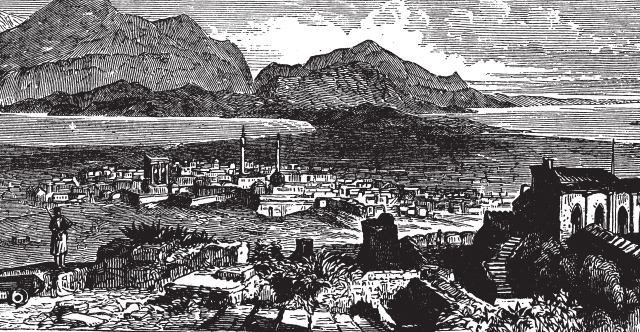
1
А
относно идоложертвеното: Знаем, че ние всички уж имаме знание да разрешим въпроса! Но знанието възгордява, а любовта назидава.
Now about food offered to idols: of course we know that all of us possess knowledge knowledge causes people to be puffed up (to bear themselves loftily and be proud), but love (affection and goodwill and benevolence) edifies and builds up and encourages one to grow.
2
А
ко някой мисли, че знае нещо, той още не е познал, както трябва да познава.
If anyone imagines that he has come to know and understand much, he does not yet perceive and recognize and understand as strongly and clearly, nor has he become as intimately acquainted with anything as he ought or as is necessary.
3
Н
о ако някой обича Бога, той е познат от Него.
But if one loves God truly '> with affectionate reverence, prompt obedience, and grateful recognition of His blessing], he is known by God '> recognized as worthy of His intimacy and love, and he is owned by Him].
4
И
така, относно яденето от идоложертвеното знаем, че никакъв бог, изобразен от идол, няма на света и че няма друг Бог освен Един.
In this matter, then, of eating food offered to idols, we know that an idol is nothing (has no real existence) and that there is no God but one.
5
З
ащото, ако и да има така наричани богове, било на небето или на земята (както има много богове и много господари),
For although there may be so-called gods, whether in heaven or on earth, as indeed there are many of them, both of gods and of lords and masters,
6
т
о за нас има само един Бог - Отец, от Когото е всичко, и ние предназначени за Него, и един Господ - Исус Христос, чрез Когото е всичко, и ние чрез Него.
Yet for us there is one God, the Father, Who is the Source of all things and for Whom we, and one Lord, Jesus Christ, through and by Whom are all things and through and by Whom we.
7
Н
о това знание го няма у всички; и някои, които и досега възприемат идолите според обичаите на езичниците, ядат месото като жертва на идолите; и съвестта им, като е слаба, се осквернява.
Nevertheless, not all possess this knowledge. But some, through being all their lives until now accustomed to idols, still consider the food as that sacrificed to an god; and their weak consciences become defiled and injured if they eat.
8
А
това, което ядем, не ни прави угодни на Бога; нито ако не ядем, губим нещо; нито ако ядем, печелим нещо.
Now food will not cause our acceptance by God nor commend us to Him. Eating gives us no advantage; neither do we come short or become any worse if we do not eat.
9
Н
о внимавайте да не би по някакъв начин тази ваша свобода да стане спънка на слабите.
Only be careful that this power of choice (this permission and liberty to do as you please) which is yours, does not become a hindrance (cause of stumbling) to the weak or overscrupulous.
10
З
ащото ако някой види, че ти, който имаш знание, седиш на трапеза в идолско светилище, то няма ли неговата съвест, като на слаб човек, да се одързости и той да яде идоложертвено?
For suppose someone sees you, a man having knowledge reclining at table in an idol’s temple, might he not be encouraged and emboldened if he is weak and uncertain, and eat what is for the purpose of idol worship?
11
И
поради твоето знание слабият погива - братът, за когото е умрял Христос.
And so by your enlightenment (your knowledge of spiritual things), this weak man is ruined (is lost and perishes)—the brother for whom Christ (the Messiah) died!
12
А
като съгрешавате така против братята и наранявате слабата им съвест, вие съгрешавате против Христос.
And when you sin against your brethren in this way, wounding and damaging their weak conscience, you sin against Christ.
13
З
атова, ако това, което ям, съблазнява брат ми, аз няма да ям месо до века, за да не съблазня брат си.
Therefore, if food is a cause of my brother’s falling or of hindering, I will not eat flesh forever, lest I cause my brother to be tripped up and fall and to be offended.
 Bulgarian
Bulgarian
 Albanian - Shqip
Albanian - Shqip
 Arabic - العربية
Arabic - العربية
 Bulgarian - Български
Bulgarian - Български
 Chinese - 汉语
Chinese - 汉语
 English - English
English - English
 French - Français
French - Français
 German - Deutsch
German - Deutsch
 Italian - Italiano
Italian - Italiano
 Māori - Te Reo Māori
Māori - Te Reo Māori
 Portuguese - Português
Portuguese - Português
 Romanian - Română
Romanian - Română
 Russian - Русский
Russian - Русский
 Somali - Af Soomaali
Somali - Af Soomaali
 Spanish - Español
Spanish - Español
 Ukrainian - Українська
Ukrainian - Українська
 Vietnamese - Tiêng Viêt
Vietnamese - Tiêng Viêt
 English
English
 Albanian - Shqip
Albanian - Shqip
 Arabic - العربية
Arabic - العربية
 Bulgarian - Български
Bulgarian - Български
 Chinese - 汉语
Chinese - 汉语
 English - English
English - English
 French - Français
French - Français
 German - Deutsch
German - Deutsch
 Italian - Italiano
Italian - Italiano
 Māori - Te Reo Māori
Māori - Te Reo Māori
 Portuguese - Português
Portuguese - Português
 Romanian - Română
Romanian - Română
 Russian - Русский
Russian - Русский
 Somali - Af Soomaali
Somali - Af Soomaali
 Spanish - Español
Spanish - Español
 Ukrainian - Українська
Ukrainian - Українська
 Vietnamese - Tiêng Viêt
Vietnamese - Tiêng Viêt
